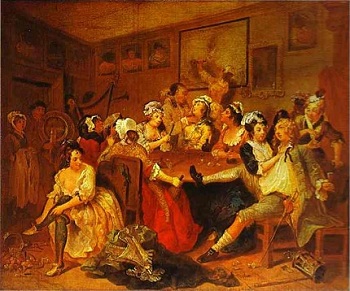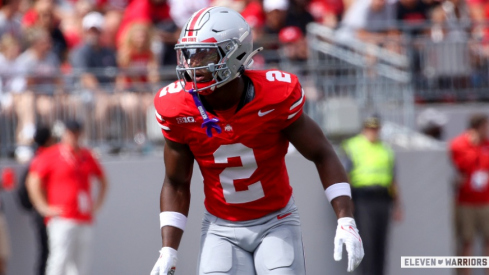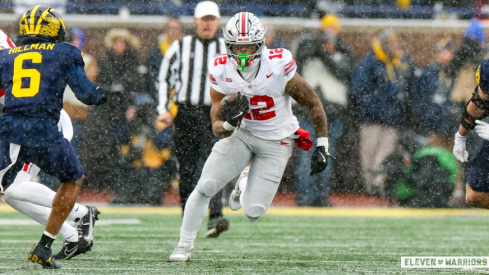Twenty-four violations of NCAA bylaws seems like a pretty bad thing to do. I mean, I'm generally a fairly law-abiding citizen, but I figure that if I do something illegal dozens of times and then tell the police that I did what I did, chances are that I will get in some measure of trouble.
So when Ohio State self-reported themselves to the NCAA, I can forgive you for thinking that this is a somewhat bigger deal than it actually is. I can also forgive you for thinking that it's even a deal at all, even though it actually isn't. I can even forgive you for thinking that the NCAA's enforcement powers mean anything at all right now, even though they actually don't.
Plus, according to The Lantern, it all sounds pretty dramatic:
The Ohio State athletic department self-reported 24 minor violations in the second half of 2013, including nine for “impermissible” phone calls, text messages and emails to prospective student-athletes, as well as three violations for various involvement in conditioning and summer camp activities.
Oh no! An "impermissible" phone call sounds like something you can get arrested for, and "violations" in over the summer? It's like Porky's gone horribly wrong, what in the hell is going on at Ohio State? What are our children being subjected to? I demand answers, Doctor Michael Drake! I WANT THE TRUTH!
The truth is that these are twenty-four of the most boring, benign violations of NCAA rules that anyone could possibly think of. They include an assistant women's volleyball coach replying to an e-mail from a high school student, a women's soccer assistant coach giving kids postcards at a soccer camp, the women's golf coach accepting a friend request on Facebook, and Mike Vrabel or Tom Herman or somebody using dip during a football game.
The first thing that comes to mind when reading these violations are that man, Ohio State coaches are sad, lonely people just trying to for once make a human connection in this crazy world of ours, but the NCAA is a heartless unfeeling monster of an organization that seeks only to keep them cloistered away like some kind of robot monks who love sports.
The second thing that comes to mind is that holy crap, women's sports at Ohio State are complete dens of iniquities, replete with volunteerism, social media encouragement, and mislabeled postal mail.

But in our gut, NCAA violations, small or large, still give us cause for concern. Not just because of the spotlight that's always on Ohio State for having one of the largest athletic departments in the country, but also because of the university's recent high profile history with the NCAA and the possible repercussions that a second visit from the piper might bring.
Not so, says John Infante of the Bylaw Blog:
If the number of violations for a given time period deviates from long-term trends, that deserves a closer look. If violations are down, monitoring systems should be checked to ensure they are working properly and that best practices are being observed. If violations are up significantly, perhaps the educational plan for coaches needs to be revised.
If things seem a little too quiet on the violation front, everything should be double-checked to ensure it is because things are actually quiet. The worst case scenario for an athletic department is to find out it seemed everything was OK because little things were falling through the cracks before they grew into something major.
Infante also quotes Gene Smith, who made a statement to the effect that Ohio State expects this number of violations in a given period of time due to the sheer size of the athletic department.
All of this means that NCAA violations aren't just expected at Ohio State and other large programs, it'd be even more suspicious if they somehow weren't happening.
Or at least being reported and then summarily dismissed by college sport's governing body with a handwave and a shake of their finger. Look, I think the NCAA can serve a legitimate purpose in the college sports world. Significant cheaters, especially where bribery or intimidation is involved, deserve to face punishment, and there has to be some apparatus to support that. We can have an ongoing debate as to what really constitutes a violation/the payment of players/etc., but I understand the need for a regulatory group to manage all of that.
But even if the NCAA acknowledges that some of their rules are so petty that their violation is to be expected and their acknowledgement is a sign of a healthy athletic department, then maybe said rules have little value in the first place. Maybe it's not even really worth it to self-report in the first place.
Maybe they're only really in place to justify the NCAA existing at all.
And right now, the NCAA really needs to justify their existence. After royally borking the Miami investigation (when Yahoo! Sports had done 90% of the work for them), misjudging their role in the Penn State scandal, and completely whiffing on Auburn, the NCAA has a horrible batting record in violations of NCAA rules that actually matter.
Still, the way to make up for those high profile screw ups isn't to continue to insist on the petty enforcement of stupid rules that change nothing about the culture of college sports; the way to make up for past mistakes is to evolve into an organization that supports open dialog on ideas and topics such as athlete pay, health insurance in scholarships, and a relaxation of some of the more draconian rules that schools like Ohio State violate constantly with essentially no real incentive to stop.
But that requires change, which is difficult. Until the NCAA stops worrying about whether a field hockey coach bought candy bars for her team on a long bus ride, they'll remain the butt of jokes and not the prestigious governing body they think they are.


